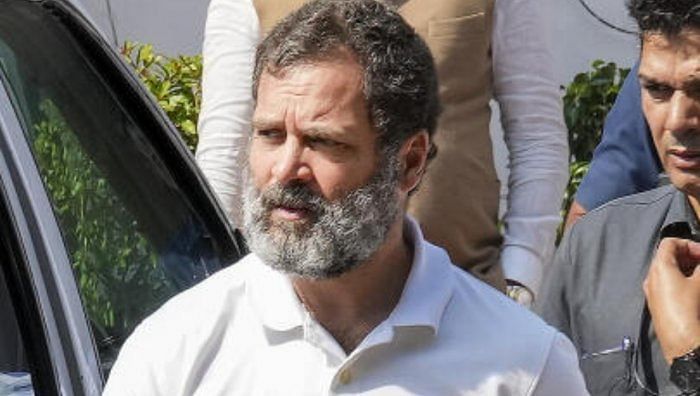
A sessions court in Surat on Thursday rejected the application of Congress leader Rahul Gandhi seeking a stay on his conviction order in a criminal defamation case. The latest decision has further deterred his chances of getting his parliamentarian status back.
Additional sessions judge Robin Mogera pronounced the order, dismissing the plea of Gandhi in the criminal defamation case while noting that Gandhi "should have been more careful with his words."
The court held that Gandhi couldn't "make out any case to suspend the conviction recorded against him." The order states that disqualification of Gandhi as an MP "cannot be termed as irreversible or irreparable loss or damage to the Appellant, as envisaged by Gujarat High Court in Naranbhai Bhikhabhai Kachhadia's case."
Also Read: Explained | What happens when a sitting MP is convicted? - A look at the relevant SC judgement
"I hold that the Counsel for the appellant has failed in demonstrating that by not staying the conviction and denying an opportunity to contest the election on account of disqualification u/s. 8(3) of the Representation of the People Act, 1951 an irreversible and irrevocable damage is likely to be caused to the Appellant," the additional sessions judge Mogera has noted in the order.
The order states that the Supreme Court in number of judgements has held that powers accorded to court with regard to suspension or stay of the conviction should be exercised with "caution and circumspection and if such power is exercised in a casual and mechanical manner, the same would have serious impact on the public perception on the justice delivery systems and such order will shake public confidence in judiciary."
On March 23, a magisterial court had found Gandhi guilty in the criminal defamation case for his remarks on Modi surname during an election rally in Karnataka in 2019. He was sentenced to two years of imprisonment, the maximum jail term under sections 499 and 500 of Indian Penal Code. The case against Gandhi was filed by Surat BJP MLA and former minister Purnesh Modi.
Following the order, the former Congress president was disqualified as a member of parliament from Wayanad. Under Representation of People's Act, a legislator convicted in a criminal case for two years or more loses his or her status with immediate effect unless his conviction is stayed.
The additional sessions judge held that being an MP, president (ex) of second largest political party and his stature, Rahul Gandhi "should have been more careful with his word which would have large impact on the mind of people. Any defamatory words coming from the mouth of Appellant (Gandhi) are sufficient enough to cause mental agony to aggrieved person. In this case, by uttering defamatory words viz. comparing persons having surname 'Modi' with thieves would definitely have caused mental agony and harm the reputation of complainant, who is socially active and dealing in public."